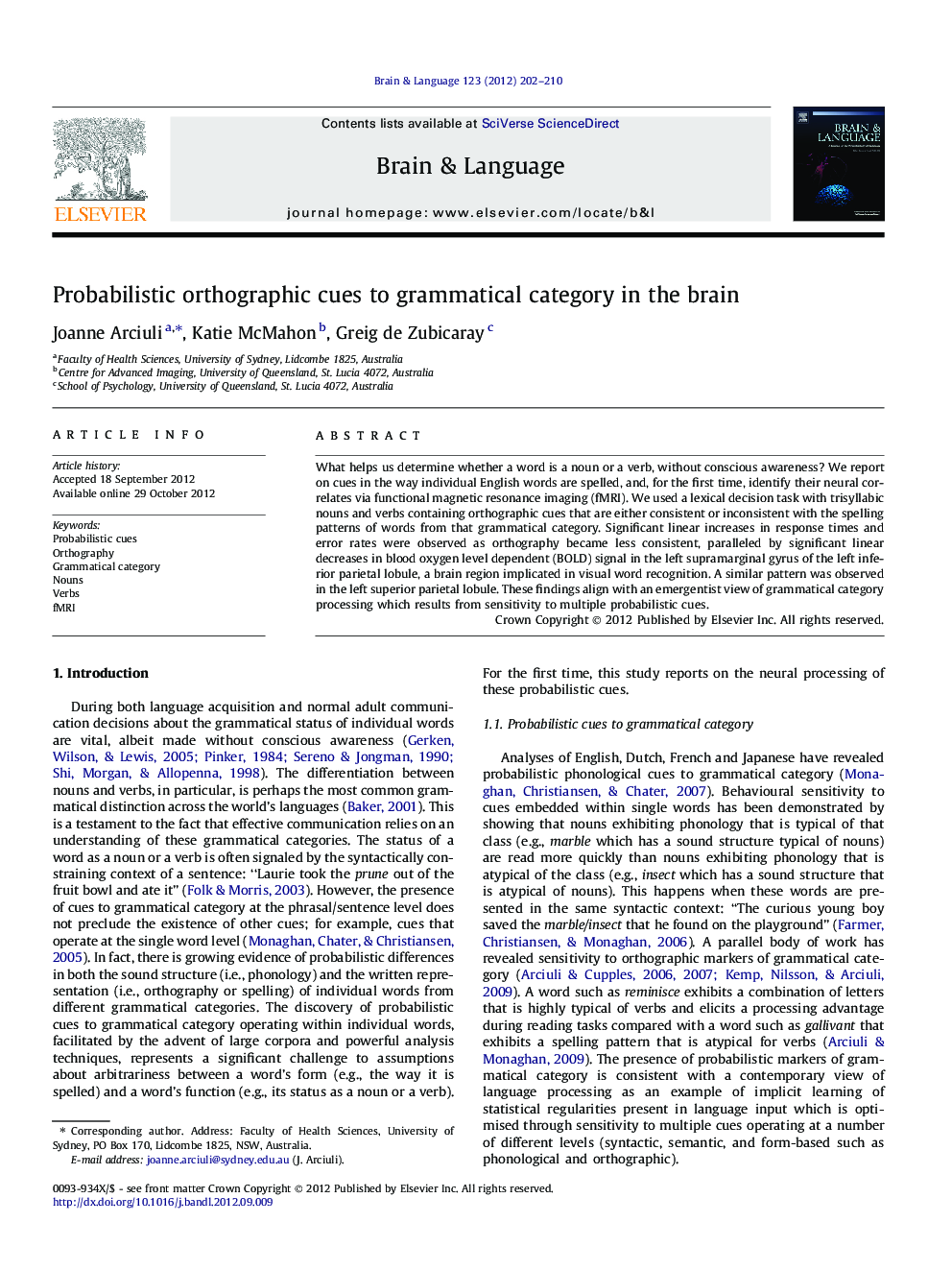| Article ID | Journal | Published Year | Pages | File Type |
|---|---|---|---|---|
| 925405 | Brain and Language | 2012 | 9 Pages |
What helps us determine whether a word is a noun or a verb, without conscious awareness? We report on cues in the way individual English words are spelled, and, for the first time, identify their neural correlates via functional magnetic resonance imaging (fMRI). We used a lexical decision task with trisyllabic nouns and verbs containing orthographic cues that are either consistent or inconsistent with the spelling patterns of words from that grammatical category. Significant linear increases in response times and error rates were observed as orthography became less consistent, paralleled by significant linear decreases in blood oxygen level dependent (BOLD) signal in the left supramarginal gyrus of the left inferior parietal lobule, a brain region implicated in visual word recognition. A similar pattern was observed in the left superior parietal lobule. These findings align with an emergentist view of grammatical category processing which results from sensitivity to multiple probabilistic cues.
► There are probabilistic cues in the way words are spelled that distinguish nouns from verbs. ► We used fMRI with a lexical decision task to determine the neural correlates of these cues. ► Trisyllabic nouns and verbs varied in orthographic consistency with respect to their category. ► Significant linear increases in response times and errors as orthography became less consistent. ► Significant linear decreases in BOLD signal in particular regions of the left parietal lobule.
